SPC inspects courts’ work in Gansu
Zhang Jun, president of the Supreme People's Court (SPC), led a team to visit Northwest China's Gansu province from April 17 to 18 to learn about the work of local primary courts of deficient capabilities.
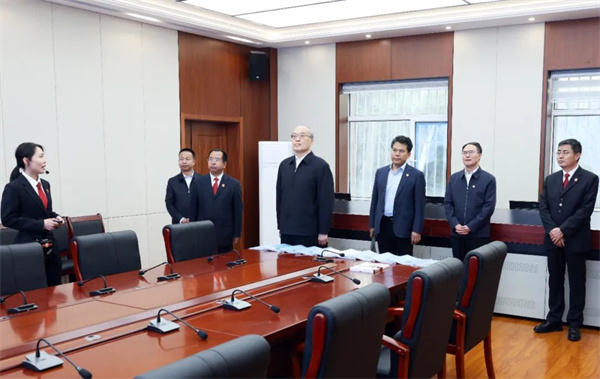
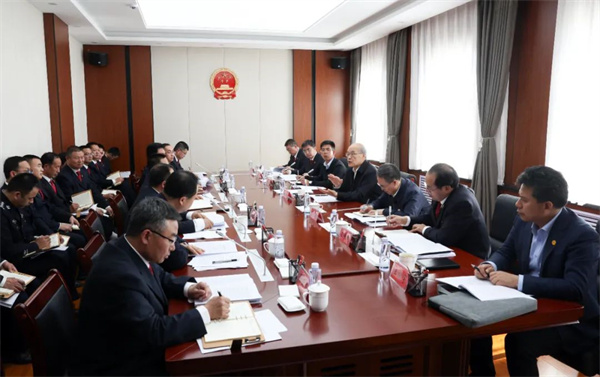
A team from the Supreme People's Court led by President Zhang Jun inspects the court of Dongxiang autonomous county in Northwest China's Gansu province, and holds a symposium with local court staff and representatives, from April 17 to 18. [Photo/court.gov.cn]
During the inspection tour, Zhang called for concrete actions to promote the development of local courts and highlighted the importance of justice and efficiency in judicial work.
The team first arrived at the court of Dongxiang autonomous county in Linxia Hui autonomous prefecture in Gansu, where they engaged in discussions with officials from two other primary courts of deficient capabilities in the province—the court of Honggu District in Lanzhou, the provincial capital, and the court of Tianzhu Tibetan autonomous county in Wuwei, to explore strategies for improving their work.
Heads of the three courts analyzed the deficiencies in their work and presented the progress made in their efforts to overcome the deficiencies over the past three months.
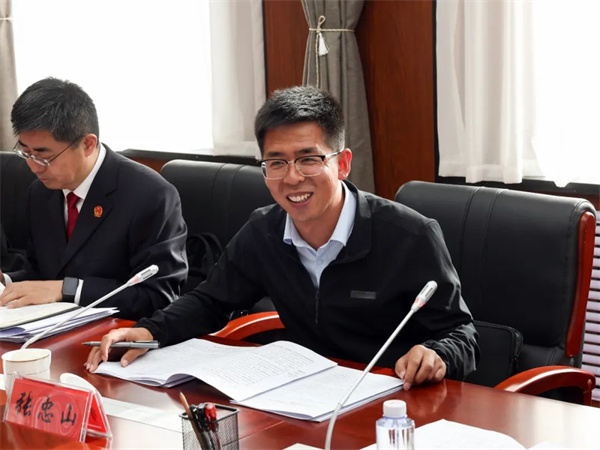
Zhang Zhongshan, a deputy to the National People's Congress, speaks at the symposium. [Photo/court.gov.cn]
Zhang Zhongshan, a deputy to the National People's Congress (NPC) praised the work of the courts and offered his suggestions. "As a lawmaker, I appreciate the effective efforts made by the courts in upholding social equity and justice, as well as in supporting poverty alleviation, rural vitalization, improving people's livelihoods, and fostering a culturally-advanced rural ethos in recent years," Zhang said.
In light of the issues identified during the inspection and the self-assessment of the courts, Zhang Jun emphasized the need to adhere to a problem-oriented approach, starting from the weakest points and striving for improvement.
"The original foundation only represents the past, whether we make an effort or not makes a big difference! As long as we are not satisfied with the situation of falling behind, and strive for progress, we will definitely achieve new accomplishments," Zhang said, encouraging them to make greater achievements to set an example for courts nationwide to strive for excellence.
He stressed the importance of targeting the "key few issues" to drive overall development and called for enhanced management. Emphasizing the use of the trial quality management index system, he urged for practical and effective data analysis and consultation to improve the quality and efficiency of judicial management.
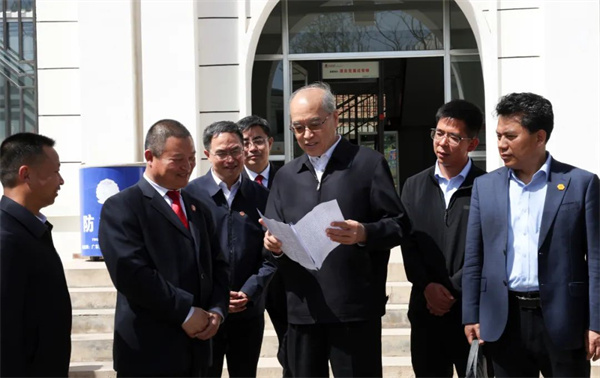
The SPC team visits the Daban tribunal of the court of Dongxiang autonomous county in Gansu province. [Photo/court.gov.cn]
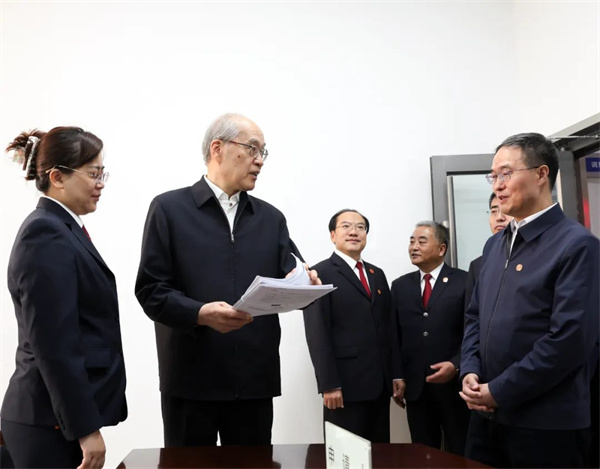
The SPC team visits the Qilihe district court in Lanzhou, Gansu province.[Photo/court.gov.cn]
The team also visited Daban tribunal of the Dongxiang court and Qilihe district court in Lanzhou, where they learned about the courts' efforts in addressing disputes at grassroots level.
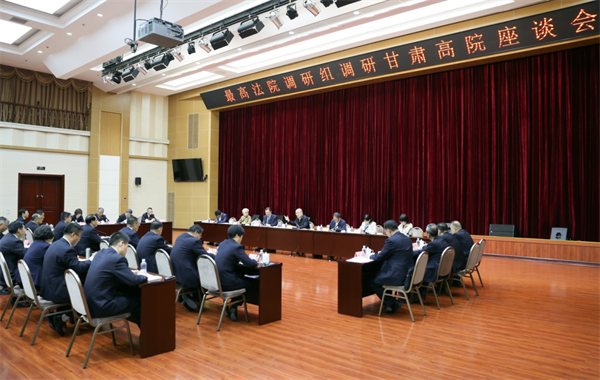
The SPC team holds a symposium at the High People's Court of Gansu Province, together with deputies to the National People's Congress and members of the National Committee of the Chinese People's Political Consultative Conference.[Photo/court.gov.cn]
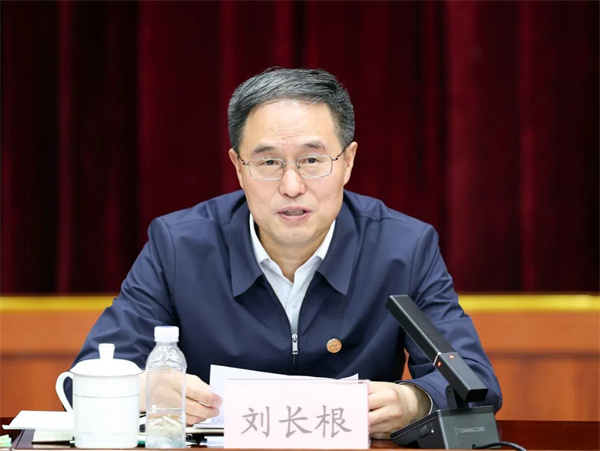
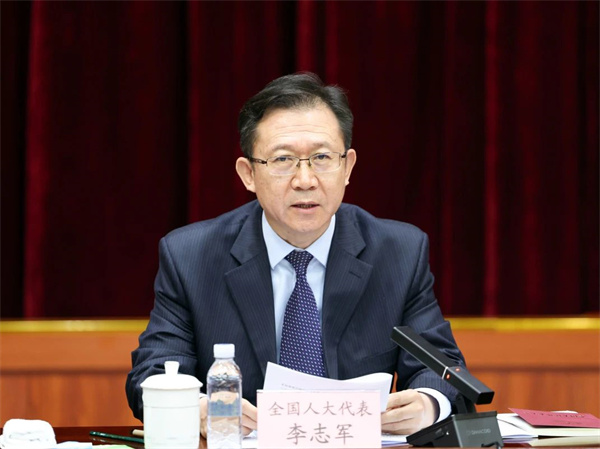
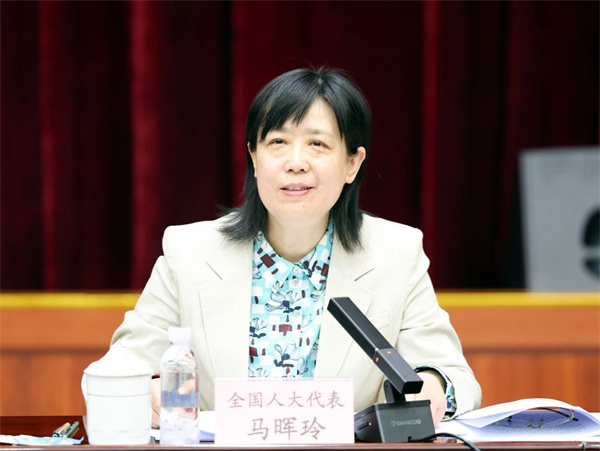
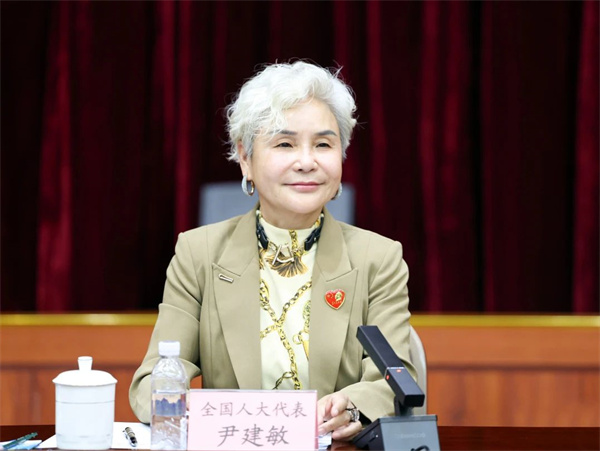
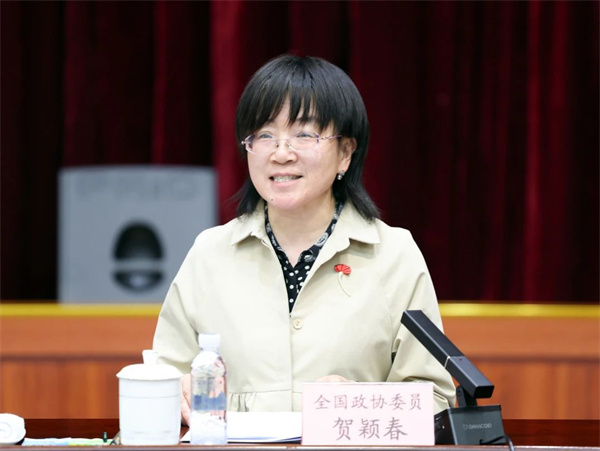
Member of the Standing Committee of the Gansu Provincial Committee of the Communist Party of China Liu Changgen, along with deputies to the National People's Congress and members of the National Committee of the Chinese People's Political Consultative Conference, speak at the symposium. [Photo/court.gov.cn]
At the High People's Court of Gansu Province, the SPC team, together with NPC deputies and members of the National Committee of the Chinese People's Political Consultative Conference, heard reports of the court and held discussions.
The SPC president emphasized the need to address the increasingly complex demands for fairness and justice from the public, as well as the new challenges arising from economic and social development.
"Shouldering the historic responsibility of supporting and serving Chinese modernization, and faced with the increasing demands of the people for fairness and justice, the new situations and issues arising from economic and social development, we must take action," Zhang said.
"The development of the courts in Gansu and across the nation over the past year fully demonstrates that through learning and internal drive, we can achieve new and greater development, fully enable the people to have a greater sense of fairness and justice, and make greater contributions to serving economic and social development."
He underscored the importance of focusing on enforcement of judgments and urged a constant commitment to "fairness and efficiency" in judicial work.
Heads of courts and tribunals should regard management as their top priority, be adept at managing cases and proficient in managing staff, he said, stressing better management awareness and capability.
The team also visited and extended their regards to the front-line court staff, engaging in face-to-face conversations and on-site visits, and communicating with those at litigation service windows and specially invited mediators.







